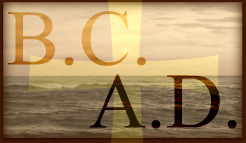Associated Press
Wednesday, July 16, 2008
NAQOURA, Lebanon — Five Lebanese militants freed from prisons in Israel in exchange for the bodies of two captured Israeli soldiers strode down a red carpet behind a Hezbollah honor guard Wednesday to a boisterous welcome from hundreds of cheering spectators.
Israel released Samir Kantar and four others after Hezbollah handed over two black coffins with the bodies of the Israeli soldiers, closing a painful chapter from the 2006 war in Lebanon.
Kantar, who had been serving multiple life terms in Israel for a grisly 1979 attack, wiped away tears as he stood before hundreds in the coastal border town of Naqoura in southern Lebanon. An honor guard escorted the men to a stage as a brass band played martial music and rows of uniformed fighters saluted.
"We knew that you were waiting for the resistance and it reached you. You came back free and heroes," said Ibrahim Amin al-Sayed, head of Hezbollah's political bureau.
• Click here to view photos.
The five later flew to Beirut, where they received an official welcome from the president and his government.
Winning freedom for Kantar was one of the reasons Hezbollah leader Sheik Hassan Nasrallah cited at the time for going to war with Israel in 2006.
Kantar was convicted in a nighttime attack that killed a 4-year-old girl, her father and a policeman. Although polls showed Israelis solidly endorsed the exchange, many see Kantar as the embodiment of evil.
"Samir Kantar is a brutal murderer of children and anybody celebrating him as a hero is trampling on basic human decency," said Mark Regev, spokesman for the Israeli prime minister.
Wednesday's exchange was also a wrenching end to the war for Israel. The soldiers' capture by Hezbollah fighters in a cross-border raid in 2006 triggered the 34-day war. The campaign to bring Ehud Goldwasser and Eldad Regev home had become a national crusade.
The soldiers' Hezbollah captors had withheld any information about them since they were taken, refusing to release pictures or allow the Red Cross to see them. It was not clear if Regev and Goldwasser were killed in the original raid or if they died in captivity. Evidence at the scene indicated both were seriously wounded.
Though officials had suspected they were dead, the sight of the coffins was the first confirmation of their fate.
Regev's father, Zvi, said he fell apart the moment he saw Hezbollah take the coffins out of a van and place them on the ground.
"It was horrible to see it. I didn't want to, I asked them to turn off the TV," he said, choking back tears.
"We were always hoping that Udi and Eldad were alive and that they would come home and we would hug them," he added, using Ehud Goldwasser's nickname. "We had this hope all the time."
An aunt of Regev's sank to the ground when she saw the coffins appear on a small TV hooked up outside the soldier's father's house. Some 50 friends, neighbors and family who had gathered there sobbed, rocked back and forth in prayer, lit candles or tugged at their hair. "Nasrallah, you will pay," several of the mourners vowed.
Other people in the crowd criticized Israeli Prime Minister Ehud Olmert, saying the soldiers died for nothing.
The swap was mediated by a U.N.-appointed German official who shuttled between the sides for 18 months.
On Wednesday, Israeli forensic experts examined the remains for several hours, checking dental records among other things, before confirming the soldiers' identities. Israeli generals then went to the families' homes to deliver the news.
After the confirmation, Israel released Kantar and the four other Lebanese prisoners to Hezbollah.
In the dead of night on April 22, 1979, Kantar and three other gunmen made their way in a rubber dinghy from Lebanon to the sleepy Israeli coastal town of Nahariya, 5 miles south of the Lebanese border.
There, in a hail of gunfire and exploding grenades, they killed a policeman who stumbled upon them, then burst into the apartment of Danny Haran, herding him and his 4-year-old daughter outside at gunpoint to the beach below, where they were killed.
An Israeli court found that Kantar shot Danny Haran in front of his child, then smashed her head with his rifle butt.
Haran's wife, Smadar, who had fled into a crawl space in the family apartment with her 2-year-old daughter, accidentally smothered the child with her hand while trying to stifle her cries.
Kantar, a Lebanese Druse who acted on behalf of the Palestine Liberation Front, a small faction of the PLO, denies killing the older child. He says she was killed in the crossfire as he battled Israeli police, and he has never expressed remorse. Kantar was 16 years old at the time.
Two members of his squad were killed in the raid, and the third, taken alive, was released in a 1985 prisoner swap.
Israel held on to Kantar for decades, hoping to use him as a bargaining chip to win new information about an Israeli airman whose plane crashed in Lebanon in 1986.
But despite dissatisfaction over Hezbollah's report on the airman, provided over the weekend, and under pressure from the captured soldiers' families to bring them home, Israel's Cabinet voted on Tuesday to release Kantar.
On Tuesday, Hezbollah's commander in south Lebanon, Sheik Nabil Kaouk, called the swap an "official admission of defeat" for Israel.
An official ceremony was planned at Beirut Airport and was to be attended by Lebanon's president, prime minister and parliament speaker. Later, Nasrallah was to address what is expected to be a huge celebration at Hezbollah's stronghold south of Beirut.
Also Wednesday, a Red Cross tractor-trailer arrived in Lebanon carrying wooden coffins containing the bodies of Lebanese and Palestinian fighters. Part of the swap included Israel handing over the remains of some 199 fighters.
In addition to the two soldiers, Hezbollah also handed to ICRC officials body parts belonging to Israeli soldiers killed during the 2006 war.
Subscribe to:
Post Comments (Atom)











No comments:
Post a Comment